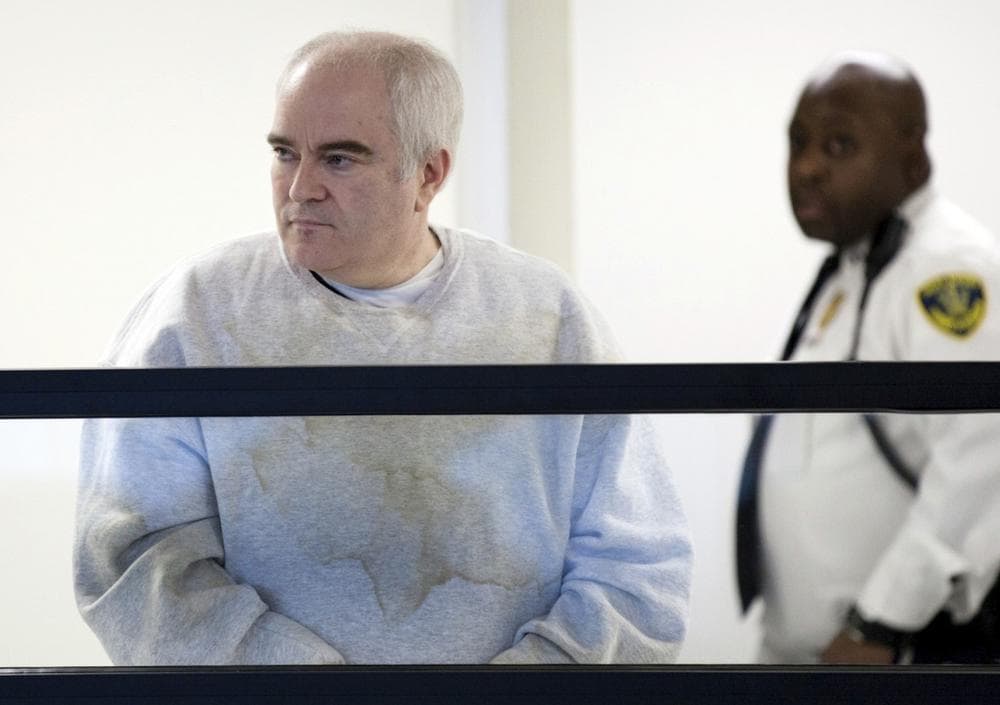Advertisement
After Wakefield, Re-Examining The State Of Day Care
The news: Last month, a 49-year-old Wakefield man pleaded not guilty to 100 criminal charges related to the rape and sexual assault of 13 infants and toddlers enrolled in his wife’s now shuttered day care center.
The Wakefield sexual assaults are heinous, and profoundly painful and destructive for the 13 children victimized, and for their families. Let me begin by expressing my sorrow to them for all they are going through, and for the period of healing that now must ensue so that this appalling betrayal of trust can be mitigated and perhaps repaired.
And let me also say to the parents something I hope you know, but that I think bears repeating anyway: You didn’t deserve this. You aren’t bad parents because you hired people to look after your children. As with the parent of a child hit by a drunk driver, or the parent of a child made ill by some terrible disease, you were unlucky. Life is fraught. And sooner or later most of us skid perilously on the black ice of bad luck.

Indeed, we pay people to go out to sand slippery roads to keep us safer. But we don’t do the same by building good day care for families with young children. Instead, we are awash in bad ideas: Like installing more video cameras in homes or daycare centers, or voting for the death penalty for sex offenders, or pressuring parents — mostly mothers — to stay home no matter what the financial, emotional and social costs. Our fear makes us ever more gated and isolationist. We decide that strangers are dangerous, and that we each have to retreat further down in our own bunkers.
Ironically, that approach heightens the very dangers it seeks to counteract. In my psychotherapy practice I’ve seen more than a few parents so worried that they never even use babysitters anymore, and so never socialize together with other adults — or with each other without their children.
But avoidant or punitive responses — which are entirely too common in our public conversations and legislation — to the awful events in Wakefield will badly miss the point. The more we stay away from others, the more we make our children frightened, and the less they are able to learn that true safety comes from having many relationships, participating in many communities, and in learning about who to trust and distrust under the watchful eyes of responsible adults.
I know about child care first hand. I am of a certain age — old enough to have lived through the feminism of the 1970s, and to have been its grateful beneficiary. It allowed me to do the work I love and to marry and raise a family.
A few months after our older son was born, I joined together with other women to start a daycare center. Both my sons attended, and both of them recall it vaguely, but fondly. They were loved by warm-hearted adults, and they spent chunks of their days playing with friends — some of whom, a quarter century later, remain in their lives.
But in my years helping to manage and run our small center, I learned another lesson, too. I learned that even banding together, middle class families couldn’t pay enough money to hire a decent ratio of good providers and pay them a living wage. I’m not proud to say that our center flourished a bit on volunteer parent labor, a bit on the subsidy from the institution where we founded it, and a lot on the backs of the generous women workers who put the children before their own financial well being. It should not have been so but it was.
We can and must do better to support working families — so they don’t have to scrounge desperately on their own to find sub-standard care, or exploit others who give first-rate care.
The era of Gerry-built daycare with wing-and-a-prayer pay arrangements ought to have ended long ago. Instead, we have retreated from our societal obligation to solve this problem. We can and must do better to support working families — so they don’t have to scrounge desperately on their own to find sub-standard care, or exploit others who give first-rate care. And it’s not just day care. Many women babysit for too many hours without any protections, and nannies have often had to abandon their own families to take care of our children for inadequate wages and poor working conditions.
While the recent mass killings in Newtown, Conn. remind us that there’s no perfect safety anywhere, we seem to have forgotten that the best possible safety is created when we come together and carefully construct social institutions that work, and that value their employees.
It’s time to create publicly monitored daycare for our young where the simple fact of many professional eyes, minds and hearts will make children safer. It should also be subsidized more generously — or out and out publicly funded.
We cannot continue to strand parents between unreasonable work demands (short parental leaves, few part time jobs that have benefits and good wages etc.) and inadequate child care resources.
The blame isn’t fairly theirs when terrible things happen, it’s all of ours.
This program aired on January 8, 2013. The audio for this program is not available.